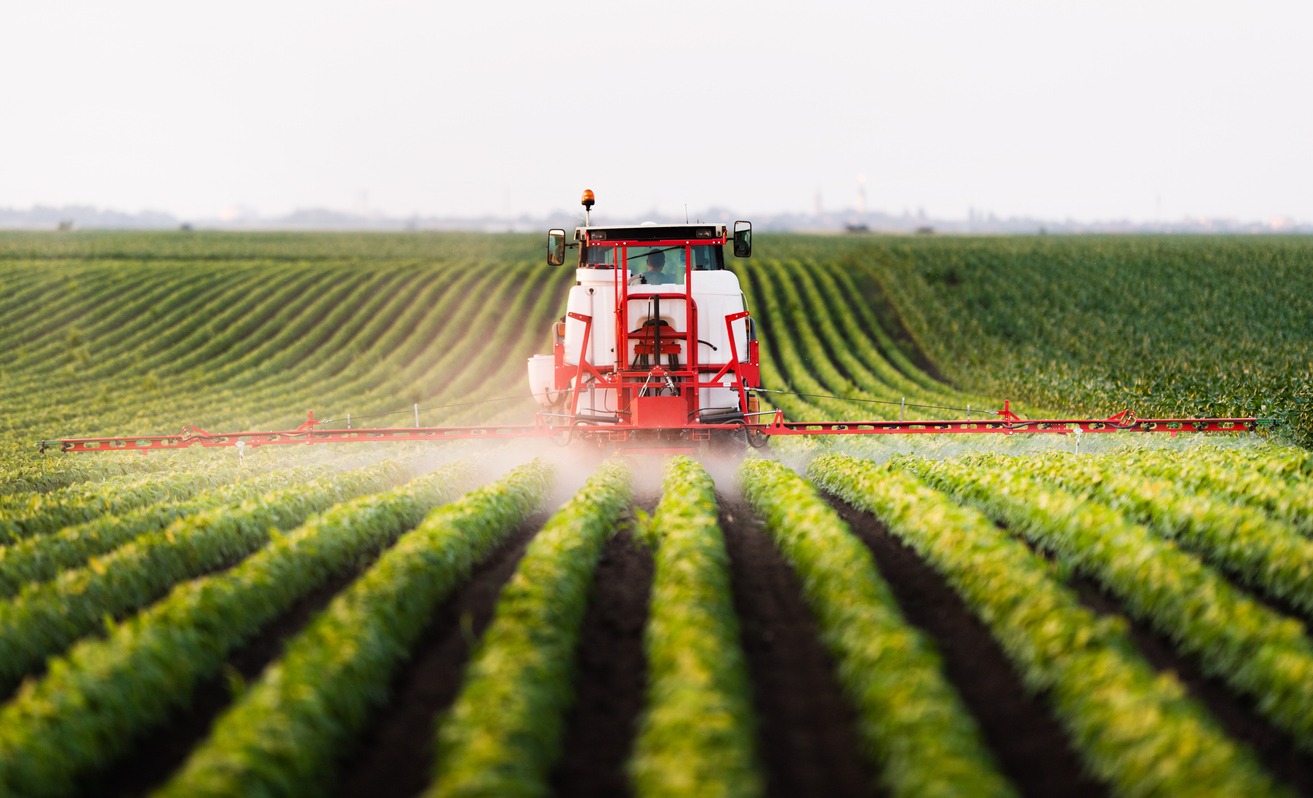As lawmakers, court battles, and consumer demand continue to push conventional chemical inputs out of the picture, a major market opportunity for bio-based inputs has developed. However, many farmers are struggling to understand an entirely new production methodology, argues biologicals veteran Pam Marrone.
In the continuing conversation about sustainability in agriculture, chemical inputs have come under fire as one of the main culprits behind the ills that food production have caused, including expansive dead zones in the Gulf of Mexico resulting from fertilizer runoff and a new class of herbicide-resistant weeds resulting from the extensive use of round-up ready crops.
Conventional, synthetic crop products are also cause for human health concerns, as a recent ruling against Monsanto’s controversial RoundUp Ready herbicide shows.
Monsanto, now Bayer, has been fighting a bitter battle against plaintiffs alleging that the glyphosate-based product causes cancer and that the company failed to disclose this known danger. Earlier this month, a California jury ordered Monsanto to pay just over $2 billion to a married couple who both developed non-Hodgkin lymphoma after using RoundUp weedkiller for several years. Other allegations have insinuated that the company made efforts to sway US regulators to overlook disfavorable trial data. Two other trials resulted in multi-million dollar jury awards and there are still more than 13,000 similar cases still pending.
On the environmental front, the US Environmental Protection Agency (EPA) announced earlier this month the cancellation of registrations for 12 neonicotinoid pesticides on the back of a lawsuit brought by the Center for Food Safety on behalf of a group of beekeepers and conservationists alleging that the agency failed to protect them from the dangers of these widely used chemical inputs. The ruling means the chemicals are no longer approved for commercial use. According to the Federal Insecticide, Fungicide, and Rodenticide Act, pesticides sold or distributed in the US must be registered with the EPA.
Meanwhile, US lawmakers are also considering bans on chemical inputs starting with New York’s ban on chlorpyrifos which could take effect in 2021 if Governor Cuomo signs the law and Hawaii’s similar ban taking effect in 2022. Now, Oregon, Connecticut, and the country’s top agricultural state California are considering similar legislation.
Regardless of the outcome of the trials, public opinion of the recently-acquired Monsanto couldn’t be worse. Bayer’s investors backed an unprecedented no-confidence vote in CEO Warner Baumann this month.
The Beginning of the Biologics Era
Clearly, the era of harmful chemical inputs is coming to an end and many farmers have seen the writing on the wall. What’s less evident to farmers, however, is how they will continue to hit the same production numbers with new and different technologies while also making measurable improvements in sustainability.
A growing list of startups is creating crop input products based on biology instead of harsh chemicals. Ag biotech startups, including many biological alternatives, captured $1.5 billion of funding during 2018, according to AgFunder’s 2018 AgriFood Tech Investment Report, with some companies announcing massive rounds like Indigo’s $250 million Series E and Precision BioSciences staggering $110 million Series B.
Biologicals consist of natural crop protection and plant health solutions that can be used alone or as part of a program that incorporates conventional pesticides and fertilizers. Looking specifically at crop protection, biopesticides are capturing an increasing share of the pesticide market, according to research group Research & Markets. Pam Marrone, CEO and founder of Marrone Bio Innovations, one of the first high profile biopesticide groups, says biologicals are the fastest-growing segment in pesticides globally.
However, there is still a lack of awareness or understanding among farmers in how to incorporate their use into their operations, she tells AgFunderNews.
“For one thing, key influencers don’t know about biologics. I have been to a lot of talks at land grant universities and there is low awareness among extension specialists. They think they know about biologics but they often mix up the categories,” says Marrone. “There is also a problem with people using the old methods of testing, which are not necessarily in tune with modes of action.”
Marrone has dedicated her life’s work to helping farmers combat their greatest enemies after working at several high profile agribusinesses including Monsanto where she was given a free rein to help the company develop a biotech program. It was here that she developed technologies used to combat corn rootworm that were integral to developing Bt corn, Monsanto’s genetically modified strain of corn that protects against the best. After Monsanto, Marrone founded AgraQuest, a company offering natural products for pest management, which was acquired by Bayer CropScience in July 2012 for $450 million.
“I’ve heard growers who are completely skeptical about biologicals say that they are the future. Biologicals are better than they were five years ago. There’s a lot more science behind the products that you see today including genomics, molecular biology, fermentation, and formulation. You will see products continue to get better and farmers figuring out how to use them in integrated programs,” Marrone explains.
Swapping out conventional chemicals for a new class of inputs is no small task, however. Over time, agri-chemical companies developed a plug-and-play system that offered farmers a solution to pests, weeds, and disease that did most of the thinking and guesswork for them. A farmer could plant Roundup-ready soybeans, apply Roundup, and know with a fair amount of certainty that the crop would be well protected from weed pressure. New chemicals could be introduced as existing chemicals lost efficacy or as new problems arose and, eventually, farmers found themselves jogging on the chemical input treadmill.
“There is a lot of discussion in the industry about how we can get back to a more sustainable or holistic regenerative system on the farm. I hear growers say, ‘I need help in changing my farm to a more holistic system; I don’t want to continue to use chemicals in succession any more,’ but that’s a huge change,” explains Marrone. “I go to lots of conferences and the change seems to be coming from the bottom up. Farmers are going out and finding the tools themselves.”
From Plug-and-Play of the Past to Holistic Farming
Wrapped into the discussion about the need for bio-based inputs are a number of sustainability-focused considerations including human health, environmental health, and one of the trendiest topics in agriculture today: soil health. Without the plug-and-play system of the past, farmers must now take into consideration a variety of factors including crop varieties, cultural practices, soil health, plant nutrition, and more.
“Farmers are starting to realize that there are more tools coming and that they can’t just use a new chemical all the time. There’s no short term fix, no silver bullet. Really, the ultimate answer is a holistic program of integrated tools and practices,” Marrone says. “The USDA is starting to shift in that direction.”
Fortunately, startups are seeing the need to make the integration of biological inputs as seamless as possible for farmers amid the rough and changing seas.
3Bar recently teamed up with microbial input startup Pivot Bio, which has created a nitrogen-producing microbial product called PROVEN that fixates nitrogen from the atmosphere and secretes it at the corn crop’s root zone to be used when the plant needs it. Arguably more important than the science involved, however, is the packaging and delivery mechanism that the companies have created. Some of farmers chief complaints against biologics including efficacy, inconsistent results, and integrating the products with existing equipment and programs.
3Bar’s delivery system allows a farmer to cultivate a fresh batch of microbes right on the farm or at home by pushing a button on the outside of the box, starting the bacterial fermentation process. Everything the microbes need to grow is located inside and the farmer does not have to perform any contamination protocols like sanitizing his or her hands before starting the process. Within 24-48 hours, the microbes are ready for use but they can be kept inside the box for up to three weeks. This is a key window for farmers who may have a sudden change of plans due to on-farm emergencies or a sudden unpredicted change in the weather.
Indigo Agriculture also offers microbial seed coatings to promote more sustainable farm management along with a range of other farm services.
Kaspera is focused on the microbe-based biofertilizer and biopesticide markets with patented technology enabling the encapsulation of the microbes. Based on microfluidics, the capsules protect the live microbes to enhance their performance as a crop enhancer and protector, according to the company.
Danish ag biotech startup BioPhero, which has attracted investment from the likes of Syngenta Ventures, develops insect pheromones that are used as active ingredients in products to control pests in crops. The pheromones are created by insects and used as signaling molecules that modify other insects’ behavior. By recreating the pheromone that insects use to indicate that they are ready for mating, BioPhero’s product lures pesky pests away from a crop. Because the insects ultimately fail to find each other, this disrupts the mating cycle and helps reduce the amount of pest pressure without impacting the crop, according to the company.





